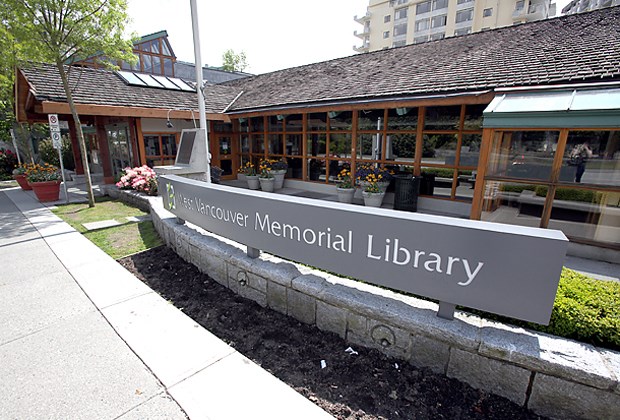When the West Vancouver Memorial Library Board recently sent the mayor and council its list of board members for the usual rubber-stamp approval, the list was accepted with one exception: Jatinder Sidhu.
What happened next depends on who you wish to believe: a volunteer who says he was told his politics and pronouncements were the reason he was scrubbed from the board, or a mayor who says Sidhu was on too many advisory boards and needed to make way for others.
Sidhu came to West Vancouver from London with his family four years ago. He took up the role of homemaker and chose to furnish a healthy share of his intellectual pedigree on community volunteer work following 21 years of journalism at the British Broadcasting Corp.
He successfully applied to three district advisory groups: the Enhance West Van Board, the Community Engagement Committee, and the Library Board. He also became a director of Positive Voices, the politically progressive group that has pushed for more housing diversity, more focus on climate change and more effort on public transit to build a more sustainable community.
It is his involvement in the latter, and his critique of the political direction in traditional and social media, that he is convinced cost him the Library Board role. In a December meeting with the mayor following his non-renewal, he said he was told his writing bothered some councillors. He concluded, “They just decided I was on the other side.” Another board member, Richard Fisher, resigned when he heard Sidhu’s story.
When I reached the mayor to discuss this, Mark Sager was adamant: “No. No. No. No. No. A hundred per cent, no.”
The mayor says it has nothing personally to do with Sidhu, but about one person being on three advisory groups when there are many others who want to step forward. “There is a lineup,” he said.
Sager says he doesn’t know Sidhu, doesn’t read social media and has no idea what Sidhu has ever said on it – and besides, he adds, council would never strike anyone who disagreed with it from an advisory group. They just want more people to hold the roles. This was not the explanation Sidhu says he directly heard.
(Let me take a break from the contrasting narratives to welcome you to the world of somebody-said, someone-else-said-the-opposite journalism.)
Every community needs dedicated volunteers and every government needs sounding boards to test-drive ideas and canvass beyond the politicians’ bubble. Why finding the truth in these two disputed versions matters is that governments need to hear anything but an echo when they seek advice, even if what it hears is not what it wishes.
If Sidhu were bumped for partisan reasons, it would be deeply worrisome for community governance. You just can’t have mayor and council deciding who sits on these boards if they’re going to retain their integrity. This isn’t patronage; it is service, and needs to be nurtured as such. Overruling a recommendation from the board about its composition because of anyone’s politics would be a pretty petty move, too. These boards need diverse perspectives if they’re going to hear properly.
If you accept the mayor’s story that Sidhu was bumped simply for occupying more than one board spot, there were better ways to introduce this policy to respect volunteerism and assuage skepticism. Since the core issue is public generosity – its provision of unpaid time and expertise to serve as a backbone of community activities – council ought to have generously discussed this in public. The backroom treatment, particularly in first applying policy to a political opponent, prompts at the very least a perception neither the mayor nor council need at this early stage of regime change.
Remember, we’re talking short terms here, not the until-you’re-75 Senate. There would be time within this council window for changed policy to gracefully take hold. (Sidhu was not the only multi-board member, either, so brace for more board rejections.)
Transparency would have given volunteers an opportunity as their terms came due for renewal to choose among their roles, not have them arbitrarily chosen for them. Instead, either through pique or abrupt policy change, a valued volunteer was stripped of a role he valued.
How that helps West Vancouver escapes me.
Kirk LaPointe is publisher and executive editor of BIV as well as vice-president, editorial, Glacier Media Group, the North Shore News’ parent company. He is also a West Vancouverite.



